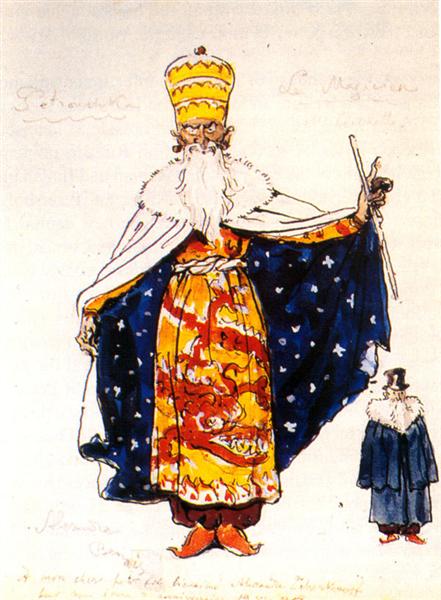Humans have sought something called “truth” for millennia. But, especially recently, we are beginning to take note of some of the challenges which steer us down the wrong path. Awareness of biases can help, but we can never get away from being human, where flawed perception is not only natural, but make up the very programming that makes our lives and the search for truth possible.
Bias is the nature of the associative mind. This is how we come to know the world how we do, for better and worse. Whatever strengthens an association is also a potential for bias; however, our sensations would be utterly meaningless if it were not for our ability to associate.
We seem to understand the ability for strong emotion to cause us to make strange claims, but we also acquire bias from simple repetition of experiences. We are programmed to see a sign of reality in something we experience often and reliably. Together with rationality, language, and perhaps some arrogance, this intuition of reality gives us the feeling that we have arrived at a truth. Some truths may be pragmatic enough, some completely misinformed. Simple familiarity is the governor of many of these truths.
Basic Associative Brain
Anyone who has studied the mind knows that in order to adapt and understand our world, we must be able to associate things together and have automatic understanding of physical relationships. Whether it is by similarity, cause and effect, or contiguity, much of our brain is dedicated to making sense of small bits of information and associating them to create webs of meaningful ideas.
Much of association happens without any excessive emotion. Our world merely comes from our experience and interaction with it. The only emotional value these things require is enough to draw the attention of a curious infant. A shifting attention gathers information and learns to pair up the parts of experience which seem to always happen together.
What we happen upon in our early years seems to be what creates a lasting basis for associations. The first years of our lives are so formative because that is when we learn what the world is like for the first time. Yet we do not yet have the mental equipment to reflect on how these associations are being formed. Unfortunately, we cannot throw aside what may be harmful or deceptive—all that is familiar will seem like reality. Wouldn’t it be nice if we could have chosen what we associate together? That is the rationalist fantasy!
Daniel Kahneman, who literally wrote the book on biases, would agree that it is associations that are the roots of bias.
“Anything that makes it easier for the associative machine to run smoothly will also bias beliefs.”
Repetition and Familiarity Biases
Kahneman says in the sentence after that quote that:
“A reliable way to make people believe in falsehoods is frequent repetition, because familiarity is not easily distinguished from truth.”
One of the ways we begin to associate pieces of the world together is by the repetition of occurrences and pairings. For this to happen, we do not need to be in an “irrational,” emotional state; we merely have to observe the consistencies of our world. We rarely suspect this to be the cause of many of our false beliefs.
Familiarity is the laziest, the most naturally occurring, method of intuiting our realities. All we need to do is experience the world by accident, and we are bound to perceive some repeated patterns. Our intuitions for reality are picked up unintentionally by our wandering attention and our unique and narrow life of experience. Like we create habits of behavior, we also create them for our world-views.
Each time we encounter something, we get progressively less surprised by it. The psychology of learning calls this habituation. An infant may find a new toy interesting and stare at it, but the second and third time you hold it in front of the child, he or she will stare for less time. In a sense, the child is learning the “truth” of the toy. That it exists as it is, and is not likely to change in any drastic way. Familiarity with this toy is what solidifies its existence.

Each occurrence of familiar event grounds them deeper into our imagination of reality. Soon our minds start to equate what is familiar with what is reality. With our intellect layered on top of this natural way of intuiting reality, we come away with a philosophy of thinking, unsurprised, “that’s how it has always been,” and predicting the future saying, “how it was, will be how it will be.”
The Basic Intuitions of Reality
We most commonly talk about this association by familiarity in our intuitions about causation. This is because we need to predict how things may affect us and react accordingly. Borrowing from David Hume’s classic example, we know that when billiard ball A hits billiard ball B, B will take off. Our familiarity with the basic, perceivable laws of physics has given us a primal level of intuition about cause and effect. When this causation intuition is applied to our relationships and how we perceive people’s signaling, there is more complexity, but nonetheless much of the groundwork for that was laid down by a repetition of some perceived cause and effect.

We also develop an idea of what something is by our repeated experience of it. Steven Pinker reminds us of how repetitive use of a category on an experience can give us an intuition about the essence of what makes something what it “is.” What gives something an essence, at least intuitively? Part of that is from repetition of categorizing. Pinker gives us examples of the intuitive prototypes we have of categories like birds. Under “bird,” we think of robins, not usually penguins or chickens. The same idea is applied to many of our social norms. Our familiarity with what a man is or does or looks like, solidifies what we think of as being essential about a man.
We also have an intuitive idea about what is considered a part and what is a whole based on the familiarity of that thing in context. Always seeing the wheels on a bicycle, may give us the assumption that they are what make up the whole of the machine.
These three ways of understanding an object intermingle and are quite complex to quickly understand, but the lesson here is that many of our bases for truth can be created simply from a familiarity with these modes of understanding the world.
The Role of the Familiar Facts
“All our reasonings concerning causes and effects are derived from nothing but custom; and that belief is more properly an act of the sensitive, than the cogitative part of our natures.”
Bertrand Russell
For us, there is a strange layering of intellect and language onto these intuitions. The familiarity with the use of language and hearing statements is different from the repetitive experience of billiard balls, but the repetition of stated “facts” can lead into a belief which one has no experience of whatsoever. The repetition of these statements, if the speakers have adequate legitimacy, lends itself to more believability.
There is a danger in this that could propagate totally false beliefs. We learn many facts on a daily basis just from ordinary conversations. This opens up a lot of opportunity for the spread of misinformation, not from malintent, but from innocuous conversation. You may hear a statement that may seem true, as long as you do have no reason to suspect it is motivated by ignorance or deceitfulness. You may think very little about what was said, but once you hear it again later, you may integrate it as a familiar fact. Consider how gullible you are when you here a random fact, especially when in the back of your mind you think, “Oh yea, I remember hearing that before.” This is made even more dangerous when we cannot remember the source that we first heard it. We may not remember that the source was totally discredited, but just the ring of familiarity will give one the feel of truth.

Even in cases of abstract knowledge, we need to accept that it is generally the intellect, or the rationalizing part of the mind, that will be the puppet of this intuition of familiarity rather than the pure reality-seeking agent. It is the primal brain informing the intellect what to think. It is difficult to convince the deepest centers of the brain and the sensory system that something is not as it seems—and especially not as it has seemed for so long, as with familiar associations.
It is a doubt of this intuition that is the first step to a broader understanding of our experience. Overriding intuition or “fast thinking” is basically impossible. We must be able to replace it with a compatible interpretation. The sun rising is a familiar fact, but better understanding of our solar system will help us interpret it in the way which explains much more of nature.
The Depth of Understanding
What we want to do with this awareness of our intuitive ideas of reality, is to use that to expand the complexity of the understanding of our experience. This can be done in two ways.
The first way is one we may know best, but is still susceptible to the familiarity bias and of other biases as well. This way is to grow a complex intellectual understanding of the world. The intellect may be the puppet of the intuition, but it is the intellect that has to convince the primal associative brain out of its habits.
William James believes that empirical belief is a sort of faith in consequence; “It always does that.” Reason is to understand the underlying mechanism of the essential agents in the experience. When we look at theories in science, we are explaining those empirical leaps of faith.
Science is meant to convey the deep complexities of nature, and going in depth can help us interpret the world according to a well-established scientific consensus. Textbook knowledge of the mechanics of the world may help a great deal in how you can interpret your experience. Deep dives into a domain can improve the interpretation of experiences quite honestly, growing one’s understanding and installing an ability to fact-check experiences and others’ statements.
But intuitions continue to influence the intellect. They can overrule scientific theory, if it is so familiar and comfortable. It may also cause one to be selective in what one works to understand, perhaps limiting oneself to one angle on health and well-being while multiple perspectives would be more holistic.
An Open Mind and a Pluralist Truth
For this to work, we must apply the second method: radical open-mindedness. To take a more proactive approach to truth is to go into new situations or modes of thinking with an open mind. Remember, our intuition of reality is based largely on familiarity, and we are only familiar with our local culture and past experience, which is very limited. Ultimately, this is a humble recognition on the complexity of reality, that it cannot be comprehended from a single person’s experience.

The physicist still cannot stop the habit of believing in a ball bouncing, even when she knows the atomic structure of this scene resembles something so irrelevant to “bouncing.” And despite the fact that it is the earth going around the sun, “the sun also rises.” We may use our tools of the intellect to go deeper into the science of phenomena, but we will always have a tendency towards our familiar experiences and familiar facts. The only thing we can do is accept the many angles on a truth.
This is not gullibility or a total subjectivist view, but an effort to look at the truth in every experience, not discounting it totally when it does not fit our truth, nor accepting anything fully which does not represent our other experiences. We can accept a lie and still not be deceived, because we can interpret that lie with an open mind, as being a gesture, rather than a truth. All experience teaches something to the unconscious mind, it takes a deep understanding of our experience to frame it without ignoring any of it.
“My answer is the poet must not avert his eyes from what’s going on in the world. In order to understand what’s going on, you have to face it.”
Werner Herzog
